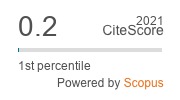Analysis of Computational Algebra for Cryptography and Coding Theory Applications
DOI:
https://doi.org/10.17762/msea.v70i1.2513Abstract
Secure communication is essential in many areas of today's interconnected society, from online commerce to international affairs. The foundation of data security is made up of encryption and decryption algorithms, and effective execution calls for an organised approach rather than a chance procedure. This study analyses several encryption techniques with an emphasis on those that apply algebraic coding theory to cryptography. These algebraic coding theory-based cryptographic systems are particularly significant for the future of data security because, in contrast to many existing systems, they provide resistance against attacks from quantum computers.This essay emphasises the necessity of an organised approach while outlining the essential concepts of encryption and decryption. It examines several encryption techniques, including symmetric and asymmetric encryption, pointing out their advantages and disadvantages.The study then explores how algebraic coding theory is used in cryptography. It explores the fundamental mathematical concepts that underlie algebraic coding methods, including finite fields and polynomial arithmetic. The McEliece cryptosystem and Niederreiter cryptosystem are two examples of unique algebraic coding theory-based cryptographic schemes that are the subject of this examination, which also highlights their benefits in terms of security and resilience to quantum assaults. These methods' computational complexity is also analysed, taking into account things like key sizes and encryption speed.With the help of the knowledge gleaned from this investigation, strong encryption systems that can survive upcoming developments in computing technology can be created, guaranteeing the secrecy and integrity of critical data in daily life.




